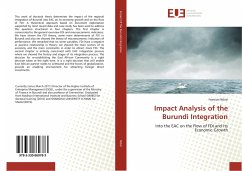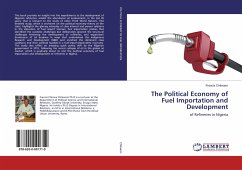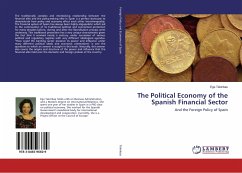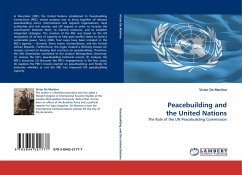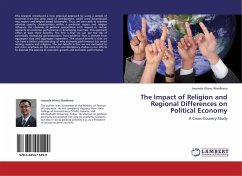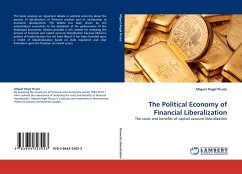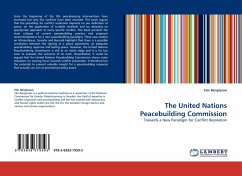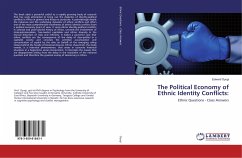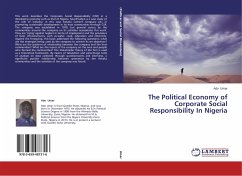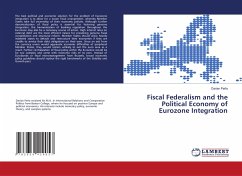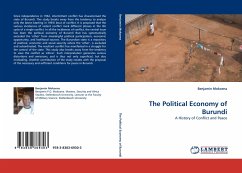
The Political Economy of Burundi
A History of Conflict and Peace
Versandkostenfrei!
Versandfertig in 6-10 Tagen
45,99 €
inkl. MwSt.

PAYBACK Punkte
23 °P sammeln!
Since independence in 1962, intermittent conflict has characterised the state of Burundi. This study breaks away from the tendency to analyse only the latest (starting in 1993) bout of conflict. It is proposed that the various incidences of violent conflict mark different phases in the life cycle of a single conflict. In all the incidences of conflict, the central issue has been the political economy of Burundi that has systematically excluded the other from meaningful political participation, economic opportunity, and livelihood sources. The Burundian state is a repository of political, econo...
Since independence in 1962, intermittent conflict has characterised the state of Burundi. This study breaks away from the tendency to analyse only the latest (starting in 1993) bout of conflict. It is proposed that the various incidences of violent conflict mark different phases in the life cycle of a single conflict. In all the incidences of conflict, the central issue has been the political economy of Burundi that has systematically excluded the other from meaningful political participation, economic opportunity, and livelihood sources. The Burundian state is a repository of political, economic and social security where the other , is excluded and subordinated. The resultant conflict has manifested in a struggle for the control of the state. This study also breaks away from the tendency to view the conflict as 'ethnic'. Such interpretation generates serious distortions and omissions, and is thus not only superficial, but also misleading. Another contribution of the study resides with the proposal of the necessary and sufficient conditions for peace in Burundi.



